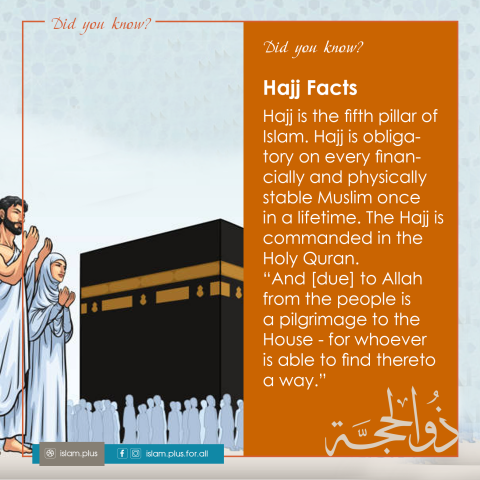
By Said Ismagilov
In late XIX — early XX century, globalization processes forced Muslims to face the phenomenon of secularity that originated and matured in West-European cultural and civilizational area.
In Europe, secularization (i.e separation of religion and religious laws from ruling the state and society), displaced the religion into the sphere of each person’s private matters. That phenomenon, foreign for Islamic Civilization, infiltrated in Arab-Muslim countries, bringing to life a counter-phenomenon, namely increased conservatism and radicalization of separate groups of Muslims, further coming to menacing proportions.
Islam, being not just a system of religious beliefs, but an integral pattern of life, fundamentally disagrees with separation of religious principles from the social life. Thus, Muslim community faced a problem of preserving Islamic principles and their Islamic identity without falling into radicalism and extremism.
As a self-regulating system, Islam has built-in instruments able to balance the whole system if some threat, either internal or external, arises. Al-Wasatiyyah is one of such key instruments.
Al-Wasatiyyah if one of Islam’s basic principles, meaning moderation, balance, “a golden mean” away from extremities and radicalism.
The phenomenon of al-Wasatiyyah isn’t something new for Islam, but it was intrinsic to Islam since the times of Prophet Muhammad (peace and blessings be upon him), and was first mentioned as a principle of Shariah in the very Holy Qur’an. The term “al-wasatiyyah” derives from Arabic “wasat” (“middle”), and is mentioned as one of Muslim community’s key characteristics:
And thus we have made you a just [moderate] community that you will be witnesses over the people and the Messenger will be a witness over you. [Qur’an, 2:143]
Note how Allah is not even ordering, but rather stating the fact that Muslims are a community of moderation and balance. Thus, being a Muslim means being a devotee of al-wasatiyyah principle, and it is out of question, as Allah himself made us the community of such principle. According to the verse quoted above, any extremity, intemperance or radicalism writ large is an underperformance of being a Muslim on both personal and social levels.
Meaningfulness of the term is also rather broad, for it determines both the internal and interfaith relations. As for the Islamic regulations as such, here wasatiyyah forbids the extreme expression of piety such as reclusion, monkery and total asceticism, as well at the opposite extreme, the so-called “secular religiosity”, where a person formally associate themselves with Islam without bothering to follow the moral standards and religious practices.
For instance, prophet Muhammad, peace and blessings be upon him, was reportedly upset when he learned that his companions fall into extreme expressions of piety. According to hadith, one of them said: 'As for me, I shall offer prayer all night long.' Another said: 'I shall observe fasting perpetually, never to break it.' Another said: 'I shall abstain from women and will never marry.' Having learned that, the Prophet outlined the principle of wasatiyyah for them, by saying:
I observe fasting (sometimes) and break it (at others); I perform (optional) prayer (at night sometimes) and sleep at night (at others); I also marry. So whoever turns away from my Sunnah (i.e., my way) is not from me.” [Al-Bukhari and Muslim]
In that context the phrase “is not from me” should be understood as “has nothing to do with the principles of islam revived through me by Allah”. From the Islamic point of view, one just can’t be more pious then the Prophet (peace and blessings be upon him) himself, or pretend to have a deeper and better understanding of Islam than him.
As for the Islamic attitude towards non-Muslim society, the al-wasatiyyah principle demands to take people of other religious views into consideration, accept and tolerate cultural and religious diversity of the human civilization. The Qur’an says:
And if your Lord had willed, He could have made mankind one community; but they will not cease to differ. [Qur’an, 11:118]
But Allah Almighty gave people the freedom of the will and the freedom of choosing their religion. Freedom, from Islamic point of view, is the greatest value granted by Lord God, and only humans, as His best creations, have the freedom in its fullest. However, freedom is not just a blessing, but a test, for it comes with responsibility for the choices we’ve made using that freedom.
Muslims must be ready, both spiritually and intellectually, to accept differences among people and and play an active part in protecting mankind from possible conflicts based on race, ethnicity, language and religion. Still less, the Muslims mustn’t initiate such conflicts, for in that case they would do against the will of God who made people free, different, and able to choose their religion freely.
In the Holy Qur’an, Allah informs us:
And of His signs is the creation of the heavens and the earth and the diversity of your languages and your colours. Indeed in that are signs for those of knowledge. [Qur’an, 30:22]
The al-wasatiyyah principle teaches people to accept and respect one another, and welcomes the pluralism of opinions, as unwilling to have a dialogue and take other opinions into account makes discontent between people even deeper and insolvable.
This is what the Muslim community should be in the perfect world; the real life, however, differs drastically. In late XX, the Islamic Civilization faced a new challenge, inconceivable for Muslims of the past.
Inside Muslim Civilization, influenced by both internal and external factors, the phenomenon of religious radicalism arouse, which sometimes takes shape of extremism and terror. So, why it was something unthinkable of? Due to Islamic principles, both al-wasatiyyah and the other, lawfulness, terror, violence and mass murders of innocent people are sinful and thus strictly forbidden. However, radical ideologists skillfully maintain a wall of silence on those principles, using factors common for most Muslim countries such as discontent, poverty, desperation, ignorance and lack of religious education for their own benefit.
Purposely manipulating quotes from Qur’an and Sunnah out of context of overall Islamic tradition; they silence most of the basic principles of Islam, givieng the pride of place to supposedly permitted violence “for the greater good”. However, the end does not justify the means in Islam. You can’t steal to donate that money to a charity, and you can’t kill the innocent to further build a better world. The world created by God is too delicate and fragile to try to put things right with a butcher’s axe.
Islam sets the bar high, however, those requirements and achievable and implementable. It’s people who, due to their ambitions, lack of education, imperfection and a whole range of external factors fail to reach the high moral and ethical principles of their own religion. People aren’t perfect — yet it can’t condone their extremism and radicalism. Aware that people can plummet to sin and crime, Allah Almighty created a counterbalance system, making Islamic tradition an unsinkable and self-regulated system.
As soon as one of the extremities gains a threatening scale, balancing tools come into effect facing the threat off. That’s why the al-wasatiyyah principle is so essential, and it became even more topical over that past decades in reaction to rising and distribution of radical ideas.
Some think that al-wasatiyyah is something new and foreign; others believe that it’s an artificially promoted teaching that has nothing to do with Islam and makes Muslims weak, dough-faced and unable to protect their own interests. Those opinions are false. Islam, with the words of its scholars and followers, actualized that ancient principle authomatically, protecting Muslims from retiring to their shell and from violent reaction of the alarmed global community.
While there are forces in Muslim world promoting extremities, violence and radicalism, there will be those standing for peace, cohesion and dialogue. The Prophet, peace and blessings be upon him, repeatedly said that war was the very last resort measure,when everyone’s out of peaceful solutions and the threat’s still there. For radical individuals, on the contrary, war is their one and only means of achieving their goals.
Many researchers believe that al-wasatiyyah principle is only actively promoted by “Muslim Brotherhood” (ed. a transnational Sunni Islamist organization founded in Egypt by Hassan al-Banna in 1928). While it is worth pointing out that it really is one of the basic principles in Muslim Brotherhood’s programme, many other Muslim organisations, unions and various strata of educated Muslims stand for actualization of that principle, as in it they see protection from radicalism and extremism for themselves and their children.
Also noteworthy is no one can privatize and claim them as solely their spiritual and intellectual achievement, for they were created by Allah to serve everyone. Despite that, it would be fair to mention that it was the Muslim Brotherhood among the very first to start promoting moderation in the Muslim world, having recognized the coming threat of extremism and international isolation. Long-term, educating Muslims while emphasizing the al-wasatiyyah principle must downplay the influence and popularity of radical ideas.
That process, however, must be mutual. The global community must stop blackening Islam and Muslims, and perceive the Islamic tradition as part of overall cultural heritage; perceive Muslims as equal and worthy individuals. By demonizing Muslims, which, we, unfortunately, still see in some politicians’, officials’ and religious figures’ speeches and programmes, is very beneficial for the extremists, for they never fail to stress hatred towards Muslims when recruiting new followers. In order for the whole global community to come together and live peacefully, al-wasatiyyah principle must become universal, and the Muslim world is willing to share it.
(text of the report at III International Applied Research Conference “Islam and Islamic Studies in Ukraine”, Donetsk, 13 September 2013)
Source: Religious Administration of Muslims of Ukraine “Umma”


 Quran
Quran





